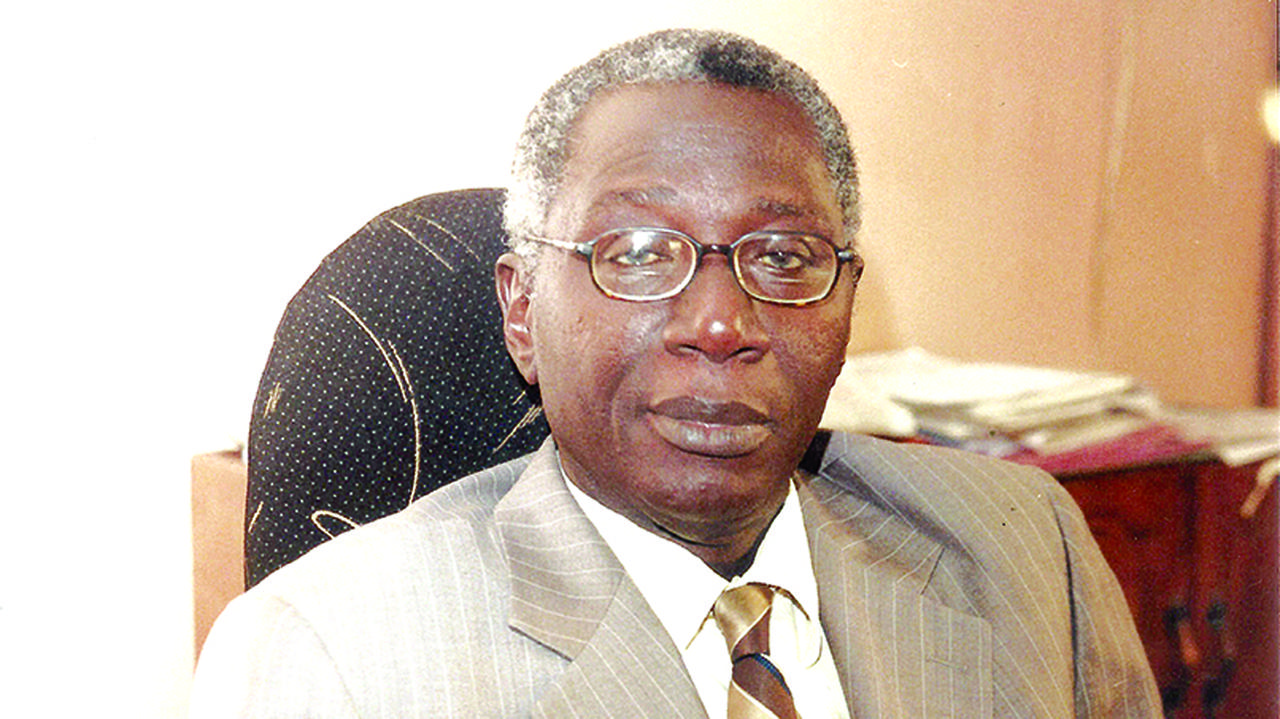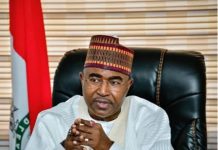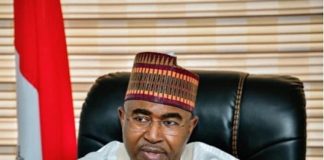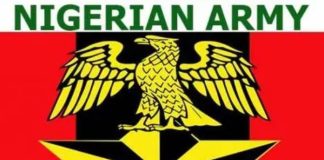🌿 Ruzu Non-Alcoholic Herbal Bitters
Ruzu Non-Alcoholic Herbal Bitters is a natural health supplement specially formulated to:
- ✅ Promote general wellness
- ✅ Detoxify the body
- ✅ Support the treatment of various ailments
Made from a powerful blend of 100% organic and medicinal herbs, Ruzu is completely alcohol-free, making it ideal for:
- 👪 All age groups
- 🌱 Health-conscious individuals
- 🌿 Anyone seeking non-alcoholic herbal remedies
Whether you're looking to boost your vitality, cleanse your system, or support healing the natural way, Ruzu Bitters offers a trusted herbal solution.
The column “Is Poverty the Ultimate Reward for Pension Contributors?” was republished last week. The essay focuses on how mismanagement, inflation, and unresolved structural concerns have prevented Nigeria’s pension reforms from shielding seniors from poverty. (This series and additional essays by the late Sir Henry Boyo can be found at www.betternigerianow.com.)
The long-standing and costly practice of Nigeria’s government borrowing its own funds from banks at double-digit interest rates, which enriches banks for doing nothing while impeding progress, is exposed in this week’s republication. This dysfunctional system, which is driven by bad policy, corruption, and misaligned priorities, is making inflation, unemployment, and poverty worse in spite of reforms and directives. Beneath the pretense of monetary management, the CBN’s actions have exacerbated Nigeria’s economic problems rather than following international best practices.
Consider the article’s year of publishing (2013) while you read it, noting past occurrences or rates. This makes it quite evident that Nigeria’s economic status has not improved despite all this time.
Being in a situation where one must repay debt is bad enough, but our Central Bank’s long-standing practice of doing so at rates ranging from 13 to 14%, as recently acknowledged by Governor Lamido Sanusi, can only be characterized as a regrettable moral hazard that could lead to economic sabotage.
In fact, by June 2013, the three levels of government had nearly N2.384 trillion in zero-interest accounts held in commercial banks, according to Alhaji Sulaiman Barau, Deputy Governor of the CBN, who confirmed Sanusi’s findings. In spite of our economic and infrastructure disaster, banks may have benefited from a bonanza of over N3000 billion for doing nothing over the past ten years, according to Barau, who also disclosed that such liquidity prompted government borrowing and may have already increased bank profitability by roughly N300 billion, even when they contributed no value to the economy! Even worse is the fact that, in order to limit the excess cash supply in the economy, the apex bank merely kept the borrowed funds dormant (sterilized) notwithstanding the high cost of service!
The simple profit margins from storing government cash led to marketing methods that included aggressive goals for delicious young women in little clothes, known as relationship officers, who served as foot troops to draw deposits! It was inevitable that MDA budgeted projects and salaries would be purposefully postponed in order to allow public officials to receive off-the-record kickbacks from those banks that retained free government funding.
Therefore, Sanusi’s new directive requiring banks to maintain 50% of government deposits dormant as reserves is unmistakably an attempt to stop the government’s blatant fraud and foolishness of borrowing back its own funds at exorbitant charges!
There hasn’t been any improvement since the CBN’s directive, though, since the Debt Management Office and the CBN have subsequently borrowed over N300 billion in treasury bills and bonds while also giving the same banks over N200 billion to redeem these matured government obligations! Additionally, the average cost of financing to the real sector has increased by more than 25%, and the naira exchange rate has ironically been under a lot of downward pressure!
The recent addition of the accounts of MDAs like NNPC, Customs, and the Federal Inland Revenue Service to the 50% Cash Reserve Requirement will not accomplish anything significant and may even work against the country’s interests. This is because further reduction of the current cash surplus will only result in higher funding costs, which will further reduce the prospects for economic growth while increasing unemployment and the impact of ravaging inflation on the poor.
It’s inexplicable that the National Assembly and the Federal Executive seem unconcerned by this oppressive situation, but even worse is the insensitivity of the experts in CBN’s Monetary Policy Committee and civil society, which includes Nigerians of high intelligence around the world, to the apparent fraud of the government borrowing back its own funds at absurdly high interest rates for more than 30 years! It’s likely a bad euphemism of a more heinous crime of economic sabotage to call such careless handling of public monies fraud!
For example, how does one explain the CBN’s odd decision to keep the Cash Reserve Ratio (CRR) for all deposits, including government deposits, at 1% in 2009 despite the fact that the banks held hundreds of billions of naira in government-free funds? The CBN then went on to mop up the resulting cash surplus by forcing the government to borrow heavily from the same banks at double-digit interest rates!
Read Also: Senate Cautions Natasha: Stay Clear of National Assembly Activities
Fascinatingly, the CBN sarcastically attributes its own failure to reduce single-digit interest rates and inflation to excessive government spending! In contrast, in any country where mass unemployment is a problem, increasing government spending is the best way to generate demand, industrial activity, and job possibilities.
By the way, the August 28 editorial in the Guardian newspaper notes that “Where then is the touted public sector dominance if public sector deposits in June 2013 comprised 20% of the N15 trillion bank deposit base?” Thus, the writer correctly determined that “the bank has a maximum lending capacity of N96 trillion with a further N12 trillion in private deposits (with CRR at 12%).”
It doesn’t matter if you agree with this argument or not; the fact is that when CBN takes our dollar earnings and replaces them with monthly naira allocations, it creates an onerous load of surplus cash in the economy. For this reason, when naira liquidity rises, the CBN’s so-called “own dollar reserves” also rise, which encourages the government to borrow back its own money at exorbitant rates in order to curb the rate of inflation. Being outside of a country’s consolidated revenue fund, it is uncommon for any central bank to claim its own foreign reserves!
Even if Sanusi inherited and continued this deceptive monetary policy management ploy, this repressive system still leaves plenty of opportunity for dishonest gain in the administration of public funds. Fuel subsidies and the peculiar practice of the government borrowing its own funds at exorbitant interest rates, for instance, cost our country more than N2 trillion a year without adding any value! Undoubtedly, as long as we all keep our eyes closed, our extreme industrial and economic hardships will persist, and CBN’s monetary policies will continue to make us poorer even as its own reserves grow.
Interestingly, on the fiscal front, the same kind of economic sabotage is also evident in the way that annual budgets purposefully understate projected revenue using extremely conservative crude export price/output benchmarks, necessitating significant government borrowing to cover the “ghost” deficits that are purposefully created! Our knowledgeable economic administrators don’t care if the government maintains an unnecessary high debt load at exorbitant interest rates to cover the imaginary deficits, while the so-called surplus or excess public monies remain in zero interest accounts!
















